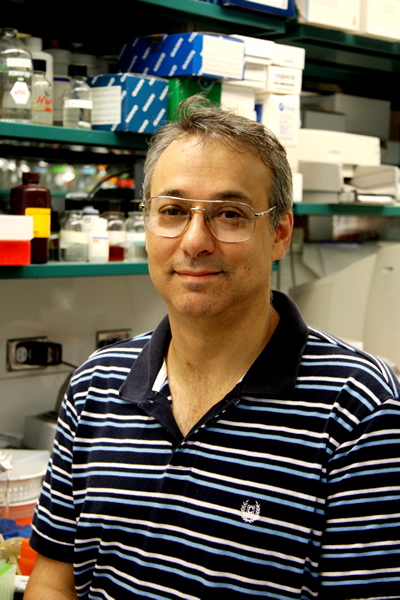
PHILADELPHIA (November 6, 2018) — Researchers at Fox Chase Cancer Center have created a mouse model that will make it possible to advance understanding of cystathionine beta synthase (CBS) deficiency, also known as classical homocystinuria. CBS deficiency is a rare recessive genetic disorder that causes the accumulation of the toxic amino acid homocysteine in the blood. The paper, authored by Warren D. Kruger, PhD, a professor at Fox Chase, appears in the Journal of Biological Chemistry.
“We created the model to study a single founder mutation, called p.G307S, which causes a single amino acid substitution in the CBS protein,” Kruger said. “Our mice have been genetically engineered so that they express only human p.G307S CBS, and no longer express the murine CBS gene.”
The mouse model, like human patients, presents with a very severe form of the disease. Because the disease is recessive, both parents would have to contribute a copy of the mutation to their child in order for the child to develop homocystinuria.
Kruger and his team collaborated with Roland Dunbrack, Jr., PhD, a professor in the Molecular Therapeutics Program at Fox Chase, to use computer based modeling techniques to understand why this mutation is so severe. The computer simulations performed by graduate student Simon Kelow in Dunbrack’s lab demonstrated that the mutation disrupts the configuration of the enzyme active site of CBS. The development of a mouse model for p.G307S CBS may make it possible to develop new treatments for the disease.